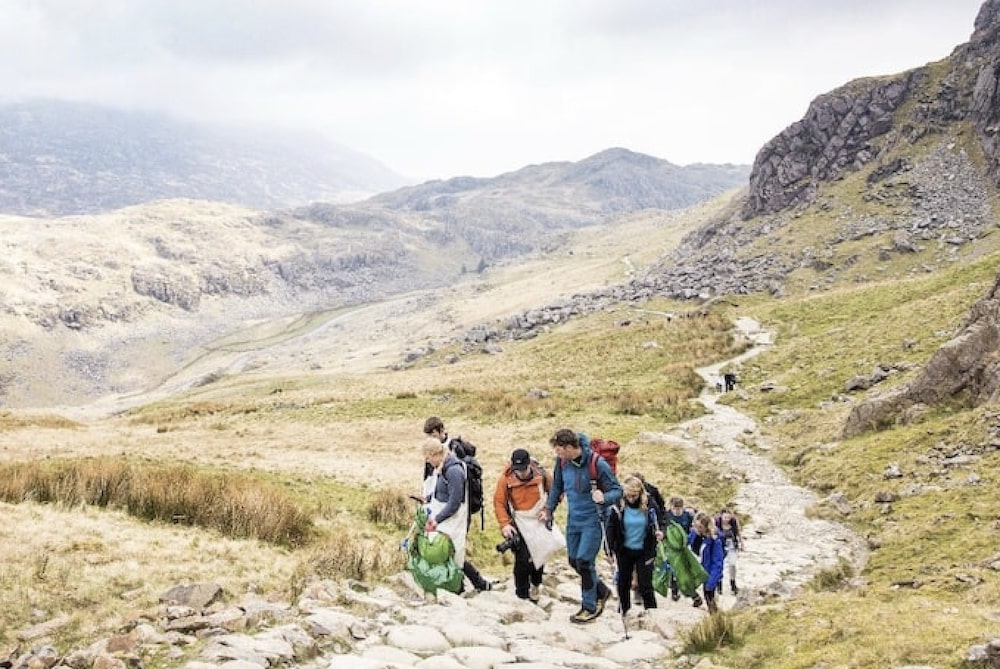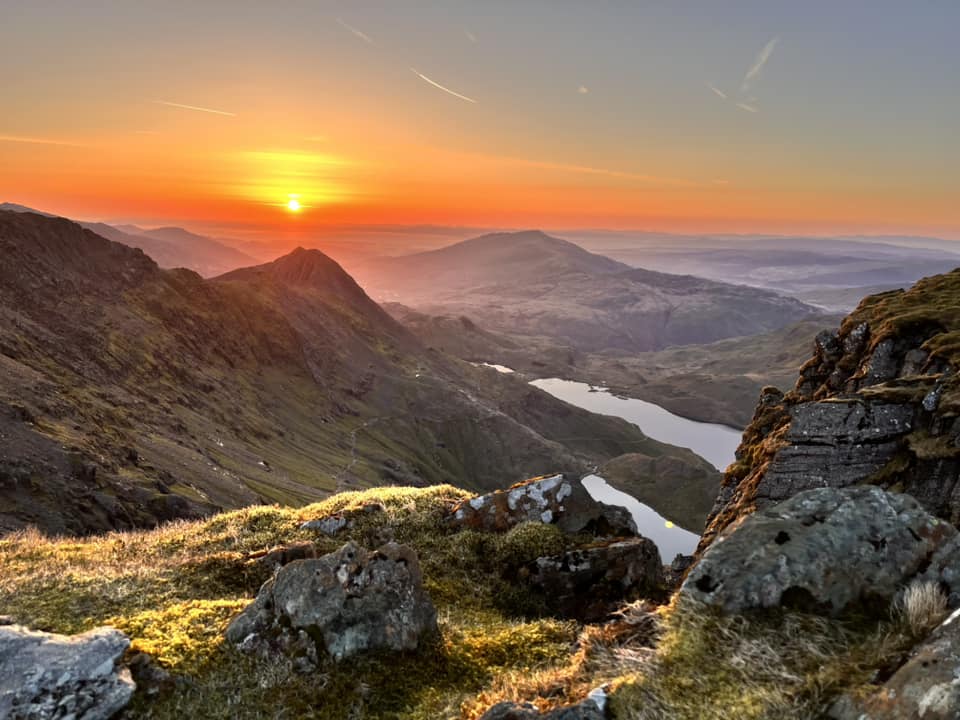The shocking figures showing the amount of rubbish dumped on Yr Wyddfa

The staggering amount of rubbish strewn across Wales’ highest mountain Yr Wyddfa has been revealed.
A clean-up operation last weekend, a collaborative effort by the British Mountaineering Council, Trash Free Trails, Plantlife and the National Park Authority, saw the removal of more than 2,700 items of litter.
Most potent among the items retrieved were single-use drinks containers – 30% of items removed were drinks bottles.
The shocking statistics:
● 30% of items removed from Yr Wyddfa (Snowdon) were drinks containers
● Lucozade, Red Bull, Coca Cola and Monster were prevalent brands in trash removed from the popular Miner’s Path and the Trinity Wall gullies
● 274 plastic water bottles alone removed from the Snowdon trails in 6 hours
● Over 2,700 items removed by volunteers and a team of expert climbers
● 62% of items removed are single-use products
Spearheaded by the British Mountaineering Council (BMC), and supported by partners Trash Free Trails and Plantlife, Cymdeithas Eryri and Parc Cenedlaethol Eryri, the event brought together volunteers and a team of expert climbers to remove trash from the popular Miner’s Path route, as well as from the Trinity Wall gullies, a popular climbing face on the mountain.
Over 800 drinks containers were removed from Wales’ highest peak causing environmental campaigners to demand the urgent introduction of a Deposit Return Scheme for bottles and cans.
The surveying of items removed from Yr Wyddfa, led by Trash Free Trails, identified high levels of items which would be covered by a future deposit scheme. The proposed DRS, which is already common-place in many European countries, will see a small deposit placed on drinks bottles and cans to incentivise their return for recycling.

Plastic water bottles were the mostly dominant culprit, with energy drinks and alcohol cans closely following. Trash Free Trails are concerned about the ecological impacts caused by the delay to the introduction of a DRS, now pushed to October 2027 with continued uncertainty around the inclusion of glass bottles around the UK.
“Our research has shown that a fifth of interactions an animal has with an item of single-use pollution will end in death, and our volunteers are increasingly finding examples of this occurring when an animal gets trapped inside a bottle or can,” said Dom Ferris, Trash Free Trails’ CEO.
“We know from European case studies that a DRS can eradicate a whole category of litter from our trails overnight; why are we allowing beloved hiking spots such as Snowdon to be the alternative to a reverse vending machine?”
Postponement
Despite attempts from devolved nations, the UK’s DRS has been pushed back multiple times, the latest postponement announced in May by the previous Secretary of State for DEFRA before the General Election. Set for October 2027, the scheme at this stage will not include glass in all parts of the UK.
Various environmental groups, including Trash Free Trails, are advocating for the scheme to come in as soon as possible, and for a focus on public engagement and awareness to ensure a smooth transition. They point out that the unique event on Yr Wyddfa highlights the importance of bringing the public along the journey towards a circular economy for drinks containers.
Tom Carrick, BMC Access & Conservation Officer for Wales, said: “The Yr Wyddfa Big Clean Up was the first time we have accessed the Clogwyn Y Garnedd gullies, one of the rarest Alpine habitats in the British Isles. One of the starkest issues was the volume of single-use plastic bottles; this appears to be one of the simplest items to rid from the mountain. A Deposit Return Scheme (DRS) in Wales and England, would encourage a much greater care and thought over what pollution was taken onto the mountain.”
Alec Young of Eryri National Park highlighted the delicacy of the mountain’s ecosystem: “Microplastics have been found in every soil sample monitored on the most popular paths up Yr Wyddfa. We see DRS playing a pivotal role in reducing litter on the mountain, and preventing harmful fragmented plastics from entering, and ruining, this fragile environment.”
“Thanks to the BMC we’ve been able to leave a positive trace on what is a really inaccessible area of the mountain, one that has never been cleaned before,” added Dom Ferris of Trash Free Trails. “But by partnering with Plantlife, the Mountain Railway, Snowdonia Society, the National Park Authority and RAW Adventures, we’ve also been able to take it one step further and enable over 40 volunteers to take positive action, and learn more about how a policy as simple as a DRS could have a profound impact on a place they love. It’s a no brainer really.”
Support our Nation today
For the price of a cup of coffee a month you can help us create an independent, not-for-profit, national news service for the people of Wales, by the people of Wales.









A job for a septuagenarian fell runner with a waste paper basket on their back…I’ve met them on Cader…sans basket…
Yourists visit areas of outstanding beauty in Wales for a reason. But it won’t remain that way if they throw rubbish tainting a landscape they allegedly love to the point that they travel hundreds of miles to visit.
This is just plain unacceptable. Live cams should be put on place and wardens employed to catch those dropping litter. If caught should be fined named and shamed then made to pick litter up.
The sort of person who discards cans and bottles on Yr Wyddfa and elsewhere is not going to be interested in getting a deposit back.
Gwahardd y tacle. Rhigo’r rheilffordd i fyny a chreu rhwystrau ffordd yn Llanberis a Nant Gwynant. Nid maes chwarae yw Cymru. Hon yw ein cartref.
The National Park Authority are not fit for purpose. They don’t protect but promote tourism.